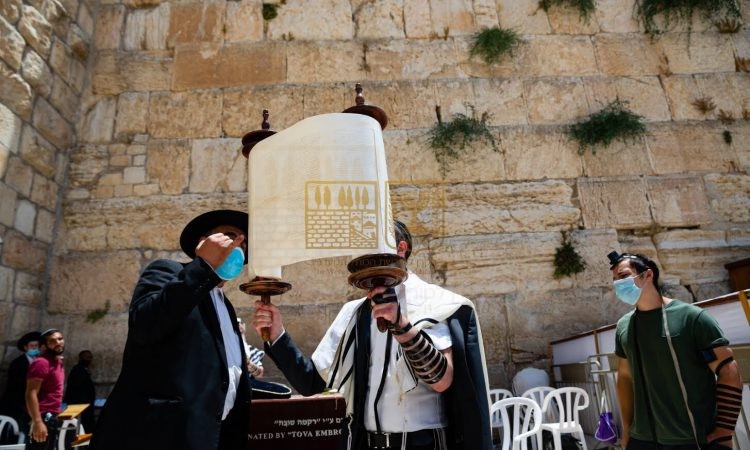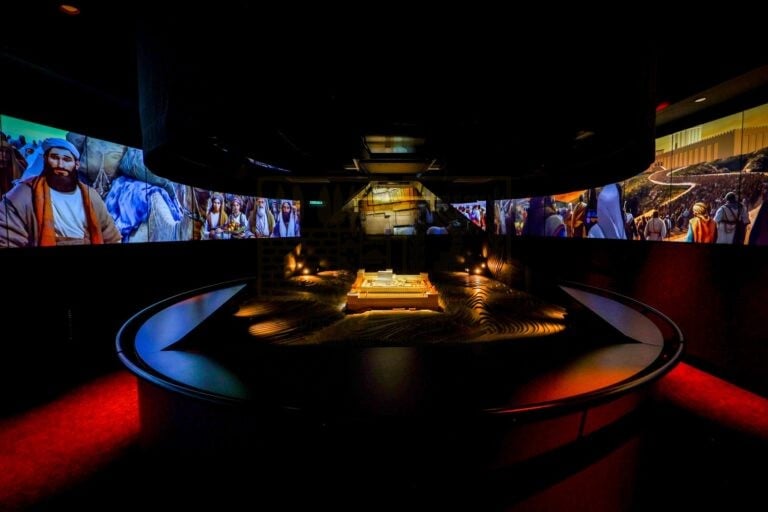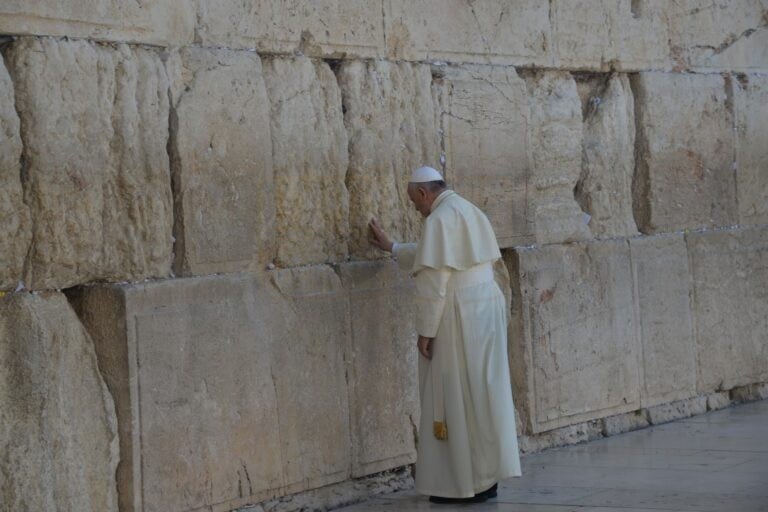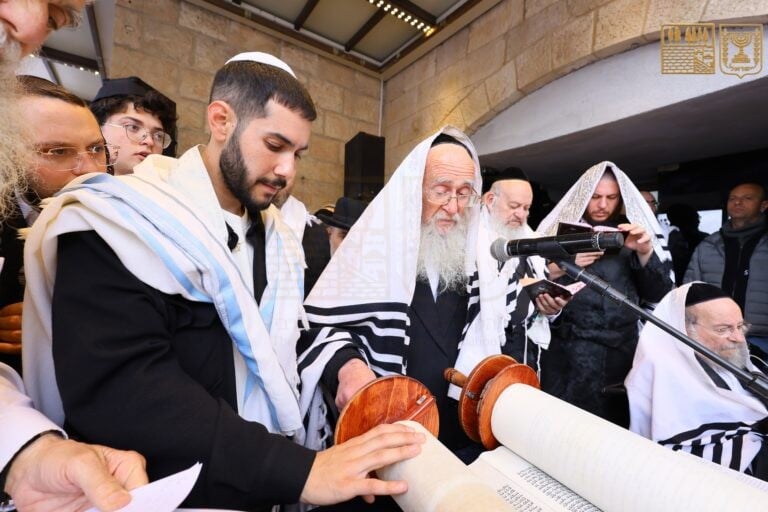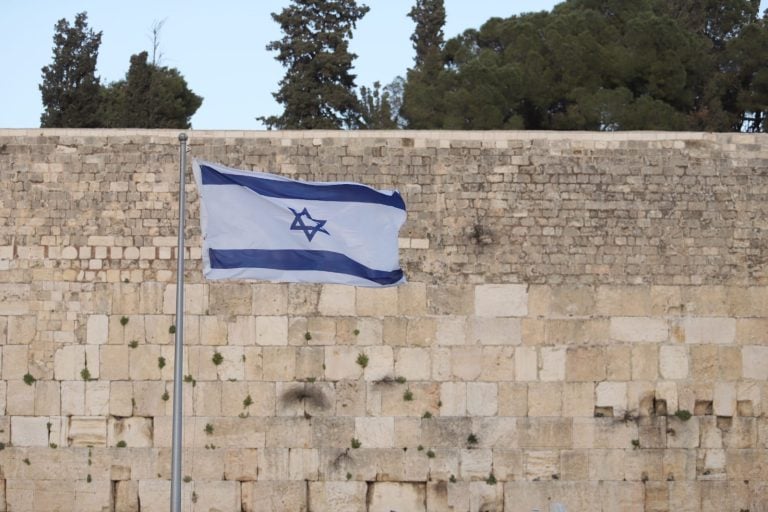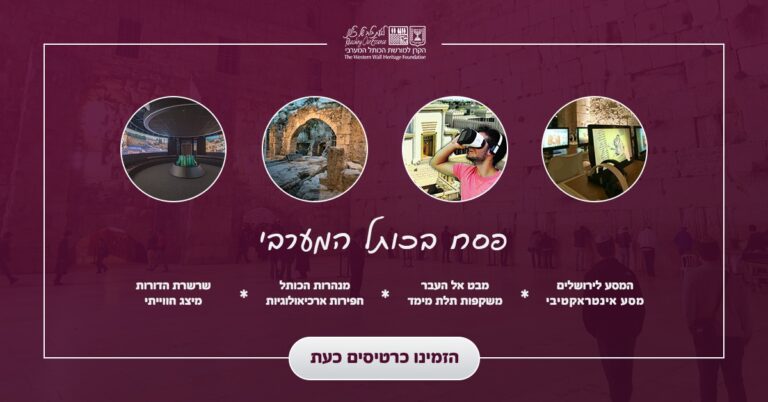Rabbi Shmuel Rabinowitz, Rabbi of the Western Wall and Holy Sites
Shavuot is approaching, the uplifting holiday we refer to in prayer as “zman matan Torateinu,” the time of the giving of our Torah. The Jewish nation customarily celebrates Shavuot every year with great happiness. Among the three central holidays – Passover, Shavuot, and Sukkot – Shavuot is exceptional. Passover is a seven-day holiday during which we do not eat chametz. On Sukkot, we sit in outdoor huts and make a blessing on the four species. Shavuot is different. It is one day (in Israel; two abroad) and does not have any distinguishing commandments. What is the essence of Shavuot? And what is the source of joy on this day?
In Chronicles, we find an early description of Shavuot, celebrated in Jerusalem almost three-thousand years ago:
And when Asa heard these words… And he gathered all Judah and Benjamin… from Ephraim and Manasseh and from Simeon… And they gathered to Jerusalem in the third month of the fifteenth year of Asa’s reign. And they sacrificed to the Lord on that day… And they entered the covenant to seek the Lord, the G-d of their forefathers, with all their heart and with all their soul… And they swore to the Lord with a loud voice and with shouting, and with trumpets and with shopharoth. And all Judah rejoiced over the oath, because they had sworn with all their heart, and they sought Him with all their will, and He was found by them, and the Lord gave them rest from round about.
(Chronicles II 15, 8-15)
These verses describe an impressive and exciting event of a renewed covenant between the people of Judah and G-d. The event was led by Asa, King of Judah, who is described in the Bible as a righteous king. Before entering this covenant, Asa embarked on a journey to purify the land of idolatry. Immediately afterwards, he gathered the people of Judah and together, they entered a renewed covenant with G-d. Based on these verses, this event occurred in the third month – the month of Sivan. The ancient translator of Chronicles added and noted that the actual date was the sixth of Sivan – the date of Shavuot.
In the Torah, Shavuot is the festival when the “minchat bikurim” was sacrificed at the Temple – two breads baked from the first wheat harvest. Shavuot is also called the Festival of Harvest, when the end of the harvest time is celebrated. The Torah does not mention the connection between Shavuot and the day the Torah was given on Mount Sinai, despite it taking place on the same date. Our sages are those who directed us to mention this in the prayers of the day, and to this day, on Shavuot, we celebrate receiving the Torah and the Revelation at Mount Sinai.
In the story about King Asa, we find evidence from the Bible marking Shavuot as the day the Torah was given. We also can learn how this was celebrated, and perhaps even the reason for the fact that the Torah does not have a commandment connecting Shavuot to getting the Torah.
Way back when, in the Sinai desert, G-d revealed Himself in the world, in fire and smoke, sound and lightening, and made a covenant between heaven and earth, between G-d and humans. As part of this covenant, we became G-d’s representatives on earth, heavenly ambassadors of goodness, righteousness, morality, and transcendence. This Divine appearance was a single occurrence. Since then, G-d has not revealed Himself in the world in all His glory. We might wonder why there haven’t been more such revelations throughout history, why G-d has not reinforced this covenant between Him and humans. The answer to this is simple: the content of the covenant entered at Mount Sinai is that man is now responsible for Divine appearance in the world. G-d does not appear again because He wanted His presence in the world to be expressed through the Jewish nation, through the light, the morality, and the integrity that they are spreading in the world.
We are not commanded to celebrate the ceremony that took place at the Revelation at Mount Sinai since there is no point in recreating it. The Revelation at Mount Sinai took place in the desert, a place with no cultural or geographic uniqueness, since there is no significance to the place where G-d reveals Himself or to the date when He reveals Himself. There is only significance to what we carry in our hearts as a result of this revelation. When we behave according to the laws of justice and morality that G-d gave us at Mount Sinai, we are actually celebrating getting the Torah – every day and at every moment.
If we want to celebrate the date when we received the Torah, we can celebrate it the way King Asa and the Judeans did, as a nation and as individuals, by entering the old covenant between G-d and man again, by internalizing our commitment to this covenant again. Based on what is promised in the Bible, this commitment will result in G-d’s commitment to man: for flourishing, growth, and peace.
